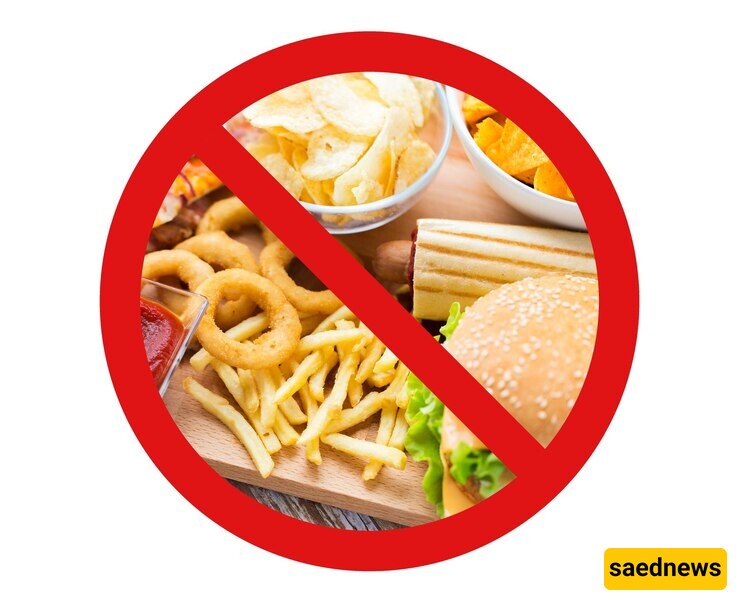SAEDNEWS: In many countries, certain foods are restricted because of cultural, ethical, or health reasons. From unusual delicacies to common staples, explore the surprising factors behind these global food bans.

According to SAEDNEWS: food is a universal language, yet not all dishes or ingredients are welcome everywhere. Across the globe, governments impose food bans for reasons ranging from public health and safety to cultural sensitivities and environmental concerns. While some prohibitions make sense, others may leave you scratching your head.

Where it’s Banned: California (USA), India, and parts of Europe
Foie gras, a luxury food made from the liver of force-fed ducks or geese, has long been a subject of ethical debates. Critics argue that the force-feeding process is cruel and inhumane, prompting bans in places like India and California. While still legal in countries like France, where it’s considered a culinary staple, growing awareness of animal welfare continues to fuel the controversy.

Where it’s Banned: United States
The famous Kinder Surprise, loved by children worldwide, is banned in the U.S. due to safety concerns. American laws prohibit the sale of food products containing non-edible items, such as the plastic toy hidden inside these chocolate eggs. Despite this restriction, variations like the Kinder Joy—which separates the toy from the chocolate—are allowed.

Where it’s Banned: European Union and parts of the U.S.
Fugu, a Japanese delicacy made from pufferfish, is both revered and feared due to its potentially lethal toxin, tetrodotoxin. While Japan has strict regulations to ensure only licensed chefs prepare the dish, many countries have banned it outright due to the high risk of poisoning.

Where it’s Banned: Australia, Canada, and parts of the U.S.
Raw, unpasteurized milk is banned in several countries due to concerns over harmful bacteria like E. coli and salmonella. Health officials argue that pasteurization ensures safety, though advocates for raw milk claim it offers better nutrients and taste. The debate continues, but the restrictions remain in place in many regions.

Where it’s Banned: European Union (except in Sardinia, Italy)
Casu Marzu, a Sardinian cheese infested with live maggots, is banned in most of Europe due to health and safety concerns. While locals consider it a delicacy, its preparation—which involves decomposition—violates food safety standards. Despite the ban, it remains a prized treat for those willing to try it.

Where it’s Banned: Denmark, Switzerland, and parts of the U.S.
Trans fats, commonly found in processed and fried foods, have been linked to heart disease and other health issues. Countries like Denmark and Switzerland have banned the use of artificial trans fats in food production, and several U.S. states have followed suit. The bans reflect growing efforts to promote healthier diets worldwide.

Where it’s Banned: United States, Canada, and parts of Asia
Shark fin soup, a traditional delicacy in Chinese cuisine, faces bans due to the environmental impact of shark finning. This practice involves removing fins from live sharks and discarding their bodies, which contributes to declining shark populations. Many countries have outlawed the sale and possession of shark fins to protect marine ecosystems.

Where it’s Banned: United States
Haggis, Scotland’s national dish made from sheep’s offal, is banned in the U.S. due to the inclusion of sheep lung, which American food safety regulations prohibit. Though this hasn’t stopped enthusiasts from finding creative ways to recreate the dish, traditional haggis remains off the menu in America.

Where it’s Banned: United States
Beluga caviar, derived from the endangered beluga sturgeon, is banned in the U.S. under wildlife protection laws. The ban aims to conserve the species, whose population has plummeted due to overfishing. Alternative caviar varieties are available, but none quite match the prestige of beluga.
Food bans reveal the complex interplay between culture, ethics, and public health. While some restrictions prioritize safety and environmental conservation, others reflect societal values and traditions. These prohibitions remind us of the diversity in culinary practices and the importance of responsible consumption.
From luxury delicacies to everyday snacks, the world’s banned foods highlight the intersection of culture, ethics, and regulation. While some bans make practical sense, others serve as a reminder of how diverse culinary traditions and priorities can be. Whether you find them strange or justified, these restrictions reveal much about the global food landscape.

